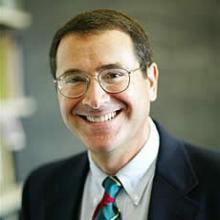America’s Flawed Search for Itself
America’s Flawed Search for Itself
By Zachary Karabell
NEW YORK – Recently, the US podcaster-provocateur Joe Rogan made headlines by saying that, given America’s current cultural trajectory, straight white men will eventually no longer be “allowed to go outside.” On the other hand, the University of North Carolina denied tenure to Nikole Hannah-Jones, the Pulitzer Prize-winning leader of the New York Times’s influential, and not uncontroversial, 1619 Project about America’s history of slavery. In another twist, the historically black Howard University disbanded its classics department, a decision that the Harvard philosopher Cornel West described as “a spiritual catastrophe.”
What these headlines demonstrate is that, in today’s woke age, Americans have yet to find an equilibrium for evaluating who they are. Recognizing the country’s legacy of flawed, incomplete national stories does not entail replacing one lopsided narrative with another. After all, in an ideal world, US citizens of all colors, ethnicities, and classes would honor and discuss multiple layers of the past.
The problem for many Americans is that embracing “wokeness” requires them to grapple with their whiteness. Although much of the United States’ past has been racially whitewashed, Americans can’t simply erase that whiteness or treat it primarily as a problem to be overcome. We cannot resolve one imbalance by creating another.
Part of the challenge is America’s unusually binary culture, at least in terms of its prevailing national narrative. In the 1950s, the dominant narrative featured a country uniquely driven by freedom, middle-class prosperity, democracy, and a voice for all. The story of slavery was a redemptive one, with the Civil War and the Emancipation Proclamation demonstrating that the US had morally strayed but ultimately returned to the righteous path. The end of post-Civil War Reconstruction and the subsequent Jim Crow era of legally enforced racial segregation in the former Confederate states were elided almost completely.
This was a triumphant narrative whose heroes were, by and large, white men. Native Americans were visible, if at all, only in brief benign cameos at the first Thanksgiving and then as enemies on the frontier. A few African-Americans – such as George Washington Carver and Booker T. Washington – made brief appearances to reinforce the story.
In the late 1960s and 1970s, there was an almost complete reversal of that narrative, and one-time heroes became villains. This narrative discovered new heroes like the abolitionists Frederick Douglass and Harriet Tubman, and the women’s rights activist Susan B. Anthony, and brought out of the shadows buried injustices, including widespread lynchings of blacks and the 1921 Tulsa Race Massacre (100 years ago last month). The oppression that America had conveniently and purposefully air-brushed from the historical picture was now crowding back in. As Malcolm X memorably put it, “Our forefathers were not the Pilgrims. We didn’t land on Plymouth Rock; the Rock was landed on us.”
Today, rejection of the “whitewashing of American history” and efforts to confront structural racism have triggered a conservative backlash, with Republican lawmakers pushing bills through state legislatures that ban the teaching of “critical race theory” in school curricula.
One way through this morass is to recognize – though not necessarily celebrate – that white men made much of American history and that no understanding of who we are can be complete without integrating that. Of course, what it means to “make history” is itself a fractious issue; but in terms of who exercised the levers of power – political, social, and economic – white men are, to say the least, overrepresented.
I recently wrote a history of America and money as seen through the lens of one family investment firm – Brown Brothers Harriman – over more than two centuries. Their story is in many ways a microcosm of American history and the yin-yang of how our narratives have oscillated. They represent a more sustainable form of capitalism, but they also rose to prominence largely because they funded the cotton trade, which was based on the labor of enslaved men and women. They spoke of public service as a moral imperative, but they also helped engineer the US occupation of Nicaragua in order to ensure repayment of their loans to that country’s government.
Though the firm long epitomized white male privilege, it began – like much of American history – as an immigrant story, with the Irish linen merchant Alexander Brown fleeing sectarian violence in Belfast in 1800 to settle in Baltimore. The company he founded shaped America’s economic development by helping to fund not only the cotton trade but also the first US railroad (the Baltimore & Ohio) and transatlantic steam lines. Cotton trade notwithstanding, the partners were founding members of the anti-slavery Republican Party. Brown Brothers Harriman later came to exemplify the East Coast WASP establishment that built the post-1945 international system still in place today, and helped to promote a more equitable, and more risk-averse, form of partnership capitalism.
That elitist, hierarchical world, closed to all but a privileged few, fell out of favor in the 1960s and 1970s. But, in stark contrast to today’s supposedly more egalitarian elites, yesterday’s titans of business and finance also believed in public service and serving the public good. Although firms’ leaders wanted to make money, they were content to make 30 times more than the average employee, compared to the 300-to-1 ratios now prevalent in large companies across multiple sectors. Although the notion that with great power comes great responsibility might seem platitudinous, they practiced it.
But it’s perilously easy to reduce everything to stick figures and stock characters. Of course, we must constantly and critically question the breezy, arrogant belief that the US is a most perfect union of freedom, democracy, and openness. Yet, another form of American exceptionalism – the notion that the US is not the best of countries but the worst – is equally distorted and in its way just as toxic and conceited.
Confronting our complex history and ultimately embracing a more equitable, balanced, and humble culture may be a tall order in these fractious times. But that makes it even more imperative that we fully reckon with who we are and who we are capable of becoming.
Zachary Karabell is Founder of The Progress Network and the author, most recently, of Inside Money: Brown Brothers Harriman and the American Way of Power.
Copyright: Project Syndicate, 2021.
www.project-syndicate.org
This article is brought to you by Project Syndicate that is a not for profit organization.
Project Syndicate brings original, engaging, and thought-provoking commentaries by esteemed leaders and thinkers from around the world to readers everywhere. By offering incisive perspectives on our changing world from those who are shaping its economics, politics, science, and culture, Project Syndicate has created an unrivalled venue for informed public debate. Please see: www.project-syndicate.org.
Should you want to support Project Syndicate you can do it by using the PayPal icon below. Your donation is paid to Project Syndicate in full after PayPal has deducted its transaction fee. Facts & Arts neither receives information about your donation nor a commission.

















